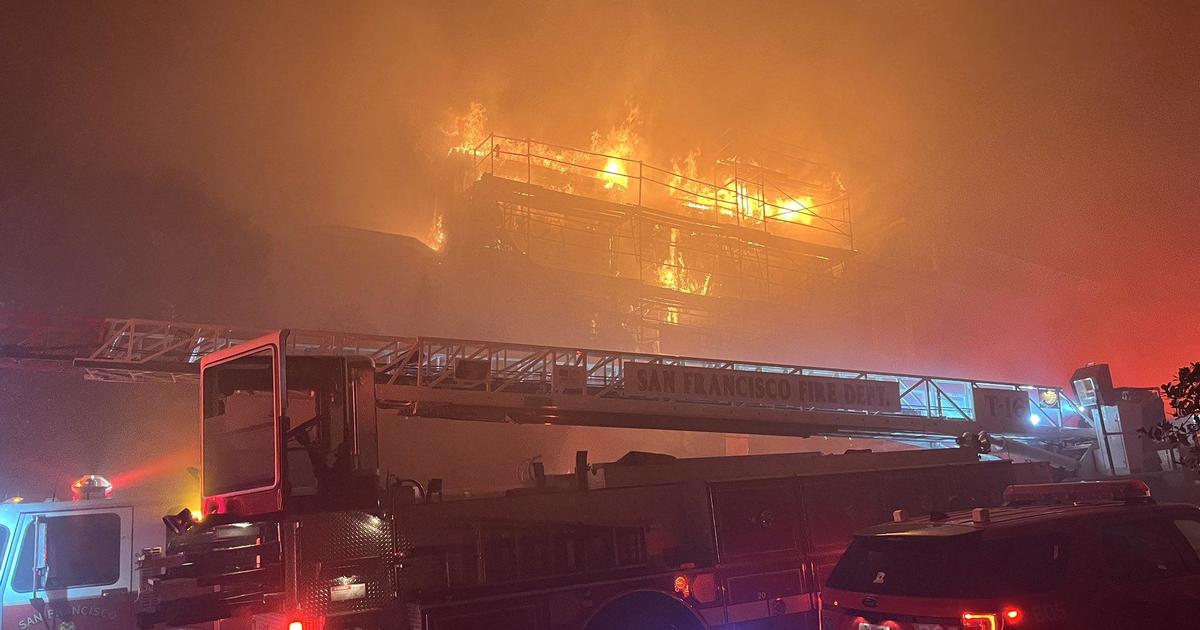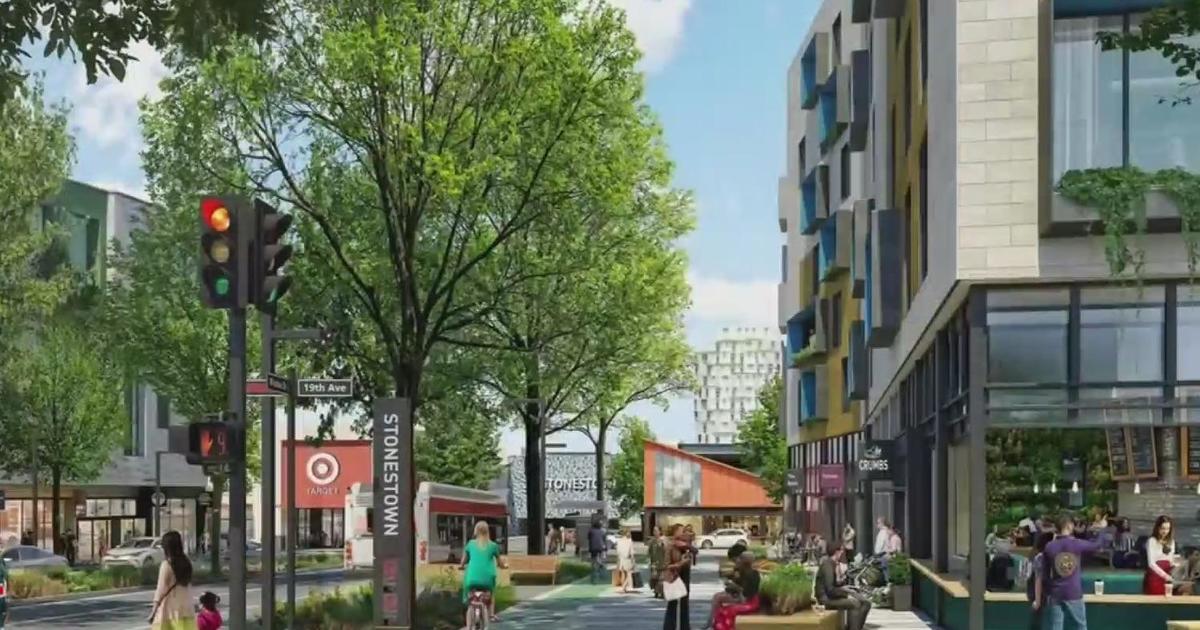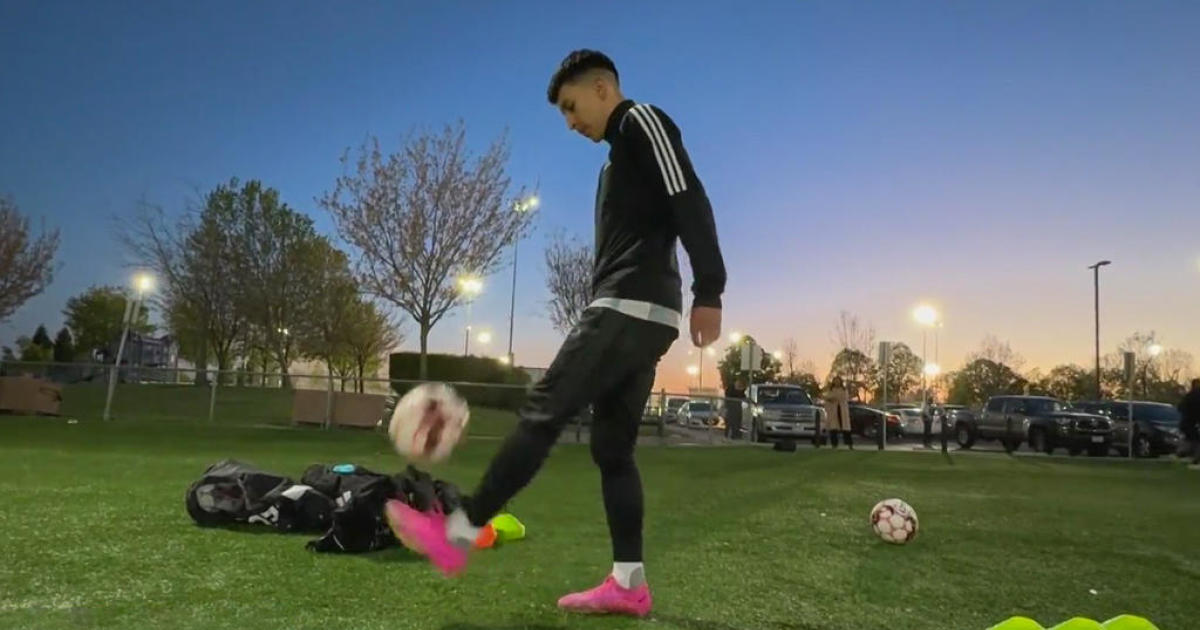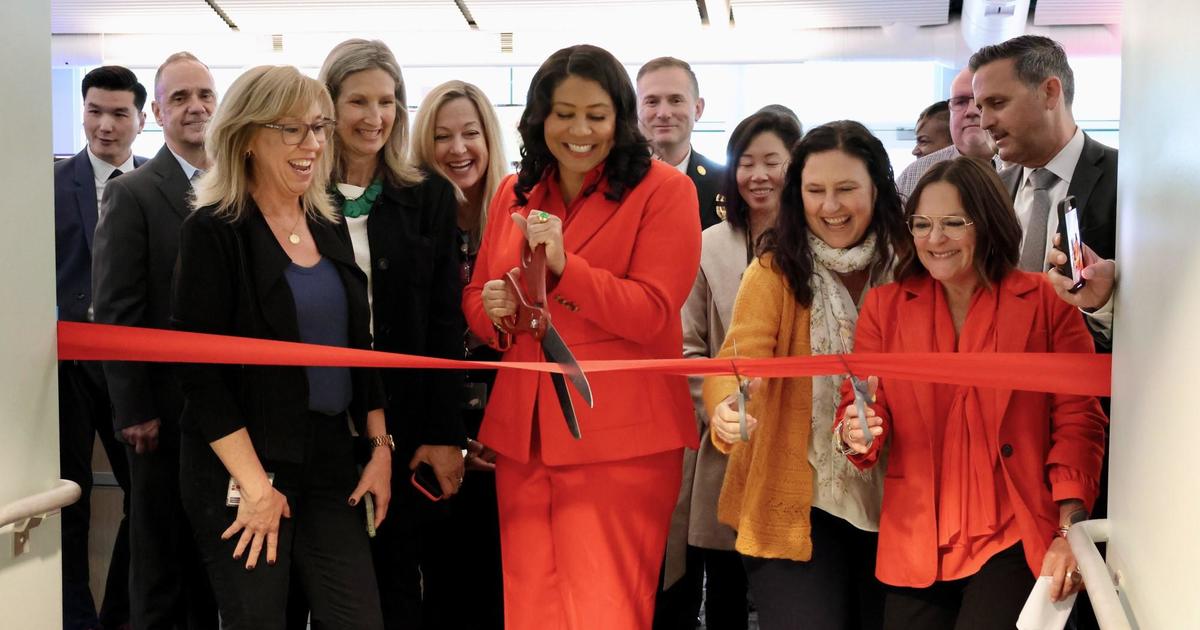BART Workers Strike After Contract Talks Fail; Thousands Seek Commute Options
SAN FRANCISCO (CBS SF) -- Bay Area Rapid Transit workers walked off the job early Monday morning after last-minute negotiations failed to produce a new contract agreement. The strike left about 400,000 BART riders finding other ways to get work.
Alameda County Transit said its buses on Monday morning were carrying many more passengers than usual. A threatened strike by AC Transit workers did not materialize despite the expiration of their existing contract. Workers returned to their jobs as contract talks were ongoing.
There were also long lines for the San Francisco Bay Ferry from Oakland's Jack London Square and the ferry service reported three times its normal ridership on Monday.
More people also appeared to turn to their cars. Traffic leading up to the toll plaza of the San Francisco-Oakland Bay Bridge was very heavy for morning commute.
Dozens of workers from the two striking unions - Service Employees International Union Local 1021 and Amalgamated Transit Union Local 155 - hoisted signs at picket lines at BART stations throughout the region. The unions represent over 2,300 BART workers.
The walkout came just a few hours after contract talks with BART management had again stalled.
"A strike is always the last resort and we have done everything in our power to avoid it," said Josie Mooney, lead negotiator for SEIU Local 1021, in an e-mailed statement to CBS San Francisco. "We are disappointed that BART's failure to bargain honestly and fairly means that hundreds of thousands of Bay Area commuters have to suffer."
Added SEIU Local 1021 spokeswoman Cecille Isidro, who was among the picketers at Oakladn's Lake Merritt station, "Some people coming to the stations get frustrated when they see the stations locked and are asking who they can call. We direct them to the BART directors... those are the folks that have the ultimate responsibility in making sure BART runs and that it runs safely."
The unions were seeking a 5 percent annual raise over the next three years.
The transit agency said it had rolled out several offers over the course of negotiations, including an 8 percent salary raise over the next four years. But the unions dismissed the proposals as "surface bargaining" and contended, if implemented, would actually result in a "net pay cut" for employees who faced increased contributions for health insurance and pensions.
BART Workers Strike After Failed Contract Talks
Union officials also claimed BART managers failed to address worker demands to improve safety conditions for station workers and passengers. Among some of the key safety concerns are lighting in stations and on train tracks, problems with the system's electrical system and attacks on BART personnel, the unions said.
BART spokesman Jim Allison summed up the contract dispute succinctly: "I think reasonable minds are disagreeing on what a fair contract is going to be."
There were no talks taking place between the two sides on Monday and it was unknown when contract talks would resume.
BART's last strike lasted six days in 1997. Leading up to Monday's widely anticipated strike, local officials had urged commuters to consider carpooling, taking buses or ferries, working from home and, if they must drive to work, to leave earlier or even later than usual.
(Copyright 2013 by CBS San Francisco. All Rights Reserved. This material may not be published, broadcast, rewritten, or redistributed.)



